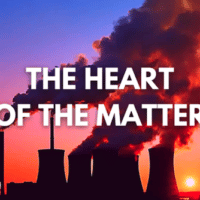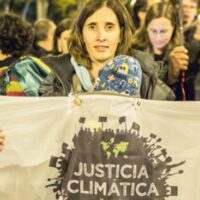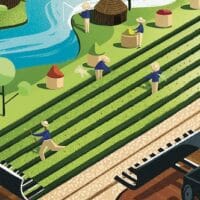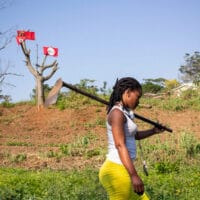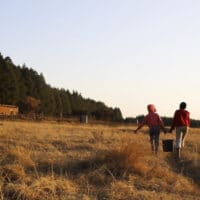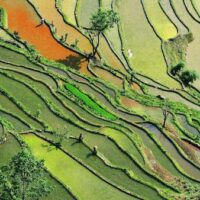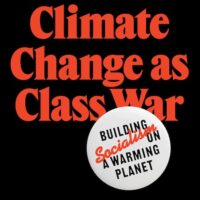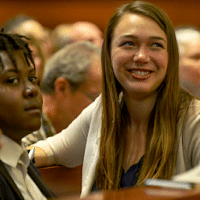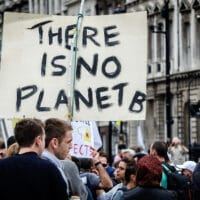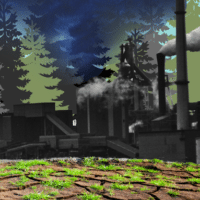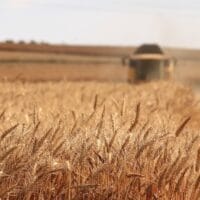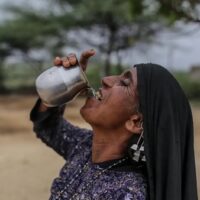-
The capitalist solution to ‘save’ the planet: make it an asset class & sell it
John Bellamy Foster explains the capitalist ‘solution’ master-minded by global finance to resolve the imminent environmental crisis: create a multi-quadrillion dollars worth of assets on the back of everything nature does and expropriate it from the global commons to make a profit. Worse still: it is already happening.
-
Don’t look to EPA to save us!
The 51-year-old agency has been losing both power and credibility over recent decades, and SCOTUS’s recent ruling undermines it even more.
-
The Global South has the power to force radical climate action
After all, Western economies–and their economic growth–depend utterly on labour and resources from the South.
-
Supreme Court condemns planet and human life
In a 6‒3 decision, the United States Supreme Court ruled on June 30 against the Environmental Protection Agency’s (EPA) ability to regulate greenhouse gas emissions, a move that signals a major setback in the fight against climate change.
-
The heart of the matter
The Supreme Court’s undermining of the EPA’s ability to fight climate change brings the terms and stakes of the current crisis into blinding focus.
-
At Bonn climate talks, rich nations stab poor countries in the back — again
The rulers of rich nations are like arsonists who, after lighting the fire, prevent anyone calling the fire brigade. An example of this took place at the Bonn Climate talks that finished on June 16.
-
ExxonMobil responds to Biden’s call for increased oil production
ExxonMobil responded to the US President by urging his administration to enact emergency measures.
-
Contributions of peasant farmer communities: The case of Venezuela
Throughout their history, agricultural, chemical and food corporations have created and implemented tactics to marginalize the peasant farmer community and indigenous people.
-
Land in South Africa shall be shared among those who work it: The Twenty-Third Newsletter (2022)
In March 2022, United Nations (UN) Secretary-General António Guterres warned of a ‘hurricane of hunger’ due to the war in Ukraine. Forty-five developing countries, most of them on the African continent, he said, ‘import at least a third of their wheat from Ukraine or Russia, with 18 of those import[ing] at least 50 percent’.
-
Dossier no. 53: This land is the land of our ancestors
The labour relations on South African farms continue to maintain race, gender, and class inequalities as a central character of work and life.
-
How China strengthened food security and fought poverty with state-funded cooperatives
The world faces a food crisis due to war, sanctions, and inflation. China has shown how to strengthen food sovereignty, while fighting poverty, with state-funded agricultural cooperatives, government crackdown on waste, and investment in technology.
-
Who is to blame for 30 years of climate change inertia?
Two new books trace the history of global inaction over the climate emergency, and seek to identify the culprits.
-
Biden is preparing to crush a historic climate change lawsuit
A vital effort to establish a legal right to a living planet could soon move forward—but the Biden administration is trying to stop it.
-
Prevent pandemics and halt climate change? Strengthen land rights for Indigenous peoples
Land is and means different things to different people. Indigenous, pastoralist, and rural farming communities are especially dependent on land, which is widely recognised by conservation organisations. Such communities are often uniquely vulnerable to the effects of ecosystem destruction while simultaneously having strong social norms and cultural values that support ecosystem preservation.
-
Turning the Earth into money w/ John Bellamy Foster
This week, Grace talks to John Bellamy Foster, professor of sociology at the University of Oregon and editor of Monthly Review. They discuss Marx’s theory of nature and the relationship between humanity and nature under capitalism.
-
Ecological rift and alienation: Field notes from Goa and Sikkim
For years, the loss of land and livelihood has been upheld as the sacrifice people would have to make in order to get jobs and money later on. It does not seem to matter that any sort of prosperity has failed to trickle down to the people till date, barring those few who get to fatten their pockets.
-
Energy reforms blocked in Mexico, sharpening ideological lines for 2024 elections
These were no minor initiatives; they jeopardized the agendas put forth by the neoliberal administrations of the past.
-
Food and decolonisation
RUSSIA and Ukraine together account for 30 per cent of the world’s wheat exports. Many African countries, in particular, are heavily dependent on them for their food supplies, which are now getting disrupted because of the war; and this disruption would continue since the war is also affecting the acreage being sown under foodgrains there.
-
India and Pakistan’s brutal heat wave poised to resurge
2022 will likely be one of the coolest years Earth will experience in the foreseeable future; much more intense heat waves are in India and Pakistan’s future.
-
Corine Pelluchon, “Das Zeitalter des Lebendigen. Eine neue Philosophie der Aufklärung” [“The Age of the Living. A new philosophy of the Enlightenment”]
Lucidly argued and touching in its appeal, Corine Pelluchon’s latest book ‘Les Lumières à l’âge du vivant’ will be a theoretical source both for ‘green’ and ‘red’ movements alike.



![Protesters carry placards as they demonstrate as part of a global day of action on climate change outside parliament in Cape Town, South Africa, September 25, 2020 [Mike Hutchings/Reuters]](https://mronline.org/wp-content/uploads/2022/07/Screen-Shot-2022-07-06-at-8.34.05-PM-200x200.png)

